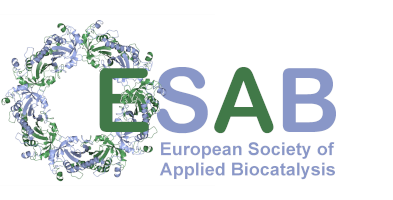Teaching Biocatalysis to Heterogeneous Student Groups
Abstract
The general term Biocatalysis raises much interest among a very broad range of students. With scientific backgrounds across all STEM disciplines, and sometimes beyond, students are attracted to the possibilities that natural systems may offer in addressing the major challenges that our society is facing. While this phenomenon certainly poses great opportunities for us to create awareness and a basic understanding of biochemical principles and industrial potential of enzymatic processes, we are also required to provide suitable content and assessment methods that allow a diverse audience to participate and profit intellectually from the courses.
Over the past eight years, I have been developing a course on the synthetic chemistry aspects of biocatalysis, and I have been able to test and re-assess course structures and evaluation techniques that would best accommodate diverse student cohorts. The course in question has been an elective part of MSc-level study programmes in chemical engineering at Aalto University, Finland (including students from process engineering, bioproducts technologies, polymer science and chemistry); and was more recently also taught in the MSc programme in chemistry at the University of Helsinki (including students from chemistry, molecular biosciences and the Helsinki med school). Focussing on assessment methods, this talk will discuss challenges that come with the diverse scientific background of the audience and will critically reflect on the attempts to best address this rather general feature of biocatalysis education by implementing different tools for the formative and summative assessment.
About the Speaker(s)
 Jan Deska (, www.deskalab.com) has never taken a course in biochemistry himself, yet somehow ended up researching enzymes. He studied chemistry at the Saarland University (Germany), where he received his diploma in 2004 and his doctoral degree in 2007, and where he investigated palladium catalysis as tool for synthetic peptide modifications. Deska continued his journey with postdoctoral studies at the Indian Institute of Science (India) on natural product synthesis, and the University of Stockholm (Sweden) on racemization catalysis. He started his independent career in 2010 at the University of Cologne (Germany), and has since learned it the hard way getting to know proteins and their peculiar properties.
Jan Deska (, www.deskalab.com) has never taken a course in biochemistry himself, yet somehow ended up researching enzymes. He studied chemistry at the Saarland University (Germany), where he received his diploma in 2004 and his doctoral degree in 2007, and where he investigated palladium catalysis as tool for synthetic peptide modifications. Deska continued his journey with postdoctoral studies at the Indian Institute of Science (India) on natural product synthesis, and the University of Stockholm (Sweden) on racemization catalysis. He started his independent career in 2010 at the University of Cologne (Germany), and has since learned it the hard way getting to know proteins and their peculiar properties.
The Deska research group is developing new applications of biocatalysts by trying the expand the scope of the natural catalysts and by creating enzyme-based methodologies for transformations that play important roles in synthetic-organic chemistry. The work includes the discovery of new-to-nature reactivities of wild-type proteins, the assembly of multi-enzymatic cascades as well as the construction of cellular factories by co-expression of synthetically useful protein catalysts.
